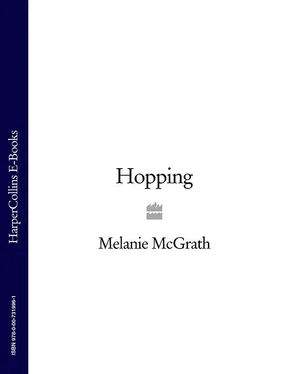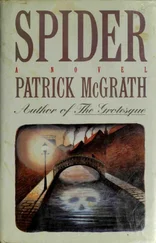Franny began to become quite obsessed with pictures and stars, and when she wasn’t actually watching a film, or talking about it, she’d be memorising lines of dialogue, cast lists and plots, or standing in front of the mantelpiece mirror in the living room, styling her hair and doing her film make-up and talking about becoming a star of the screen. No entreaties by her sister or scolding by her father could make her give up her fantasies. No laundry could contain her, no factory feed her talent. Joe and Daisy would see. She was meant for better things. In a year or two Franny Crommelin intended to be at least as famous as Louise Brooks, as glamorous as Gloria Swanson and as rich as Mary Pickford.
And so, when Franny was finally released from her schooling aged fourteen, the first thing she did was to wave her hair and dab rouge on her cheeks and lips, don her Sunday dress and present herself at the staff entrance of several of the larger picture houses requesting a screen test. Mostly, the picture house managers would say there weren’t any openings for picture starlets that week, but a few, noting Franny’s lush hair and bonny features, would tip her a wink and tell her to come back after the night’s performance and discuss matters over a drink.
Cheeky bleedin’ cusses , Daisy would say, I catch them taking any liberties with my little sister, I’ll give ’em a clip round the ear so hard they’ll be seeing stars all right .
Finally, after months of persistence, during which Franny fended off the managers of half the cinemas in East London, with varying degress of success, the manager of the Pavilion, Freddy Ruben, offered her a position as a junior usherette. This she accepted, though not in the best grace, on the assumption that, before the year was out, her true talents would be recognised and rewarded. When, after three months, then six, then nine, she was still sweeping peanut shells and cigarette butts off the floor, with no prospect of advancement, Franny Crommelin decided to change tack. If the world wouldn’t come to her, she would have to go out to the world. She began adding face powder and lipstick to her already rouged face and took to curling her hair with rags and irons. When Joe wasn’t looking, she would sit in the living room making alterations to her clothes, putting in tucks here and there to accentuate her curves. On her fifteenth birthday she came home sporting a fetching new hat, swearing she’d picked it up for pennies from Flitterman’s misfits, even though Daisy could see it had come from somewhere more expensive, like Selwyn’s. A few weeks later, a silver-plated filigree brooch appeared on the lapel of her coat, and not long after that, she returned home carrying a new pair of tan kid leather gloves. All of these things, she said, she’d bought from her wages, but Daisy had seen how Freddy Ruben had begun to watch her sister and she sensed trouble ahead.
Trouble there was too, but this time it was out on the streets of Poplar. On 2 May 1926, Joe arrived home from work with the news that a General Strike had been called for the next day.
The bosses had it coming , was all he’d say.
Daisy knew nothing about workers’ rights or trade unions. She was vaguely conscious of the fact that, from time to time, Lilly attended union meetings, but Daisy believed it was better not to make a fuss about anything if you didn’t have to. Her heart went out to men like Paddy Shaunessy, who’d given their legs for their country only to be abandoned by it, but to her way of thinking men like Paddy were precisely why more fortunate families such as the Crommelins, who really had nothing to complain about, were better off keeping their gripes to themselves. There was something unfair, even unseemly, complaining about working conditions or even about unemployment when there were so many people worse off than herself. Life wasn’t fair on anyone, but it had been a good deal fairer on those who still had the legs to march than it had on men like Paddy Shaunessy.
On the other hand, Daisy always obeyed her father, and Joe Crommelin was a union man. If there was a General Strike, Joe said, the Crommelins would stand alongside their fellow workers.
The following morning was the strangest since Daisy had come home to find her mother locked in the understairs cupboard with Mrs Anderson yelling at her. After Joe had left, Franny didn’t want to leave the house, but Daisy decided to venture out. It was as though a huge tide had broken during the night and taken away everything familiar. Instead of the usual morning bustle, there were no omnibuses, no wagons or delivery boys on bicycles on the streets, and what few men were making their way along the street in their work clothes kept their own company. Most of the shops along the Commercial and East India Dock Roads had been padlocked and some had even been boarded up, and the routes to the dock gates, which would usually at this time have been aflow with dockers in flat caps and serge suits with neckerchiefs for collars, were oddly empty, as though a strong wind had whistled through and blown them away. The factory gates were padlocked and, along her habitual route to the Apex Laundry, Daisy could no longer smell the rich tang of hops. As for the laundry itself, the door was barred and someone had pasted up a notice, around which a number of laundresses were clustered, gossiping in muted voices.
Daisy returned home past gaggles of men, grouped at the corners of the street, subdued-seeming and anxious. Some of the women had already taken out tea and pieces of bread and dripping to them. Every so often a boy would arrive with a message, which would spread between the groups of men, drifting finally into the houses, where the women passed it on among themselves.
In the afternoon, with Joe still absent, Daisy persuaded Franny to come out with her. The locked shops and barricaded frontages were obscured now behind a phalanx of men and women carrying placards and banners and shouting for jobs and justice. Volunteer policemen, many of them mounted, surrounded the marchers on all sides and the streets were as tense as barrel straps.
I don’t suppose no one much will be at the pictures today , Franny said, tossing her hair in a peevish gesture, as if all the shenanigans on the street had been done somehow deliberately to thwart her.
I don’t suppose , her sister said.
No point in turning up for me shift, then. I wouldn’t mind going to the pictures myself, though, later. If hardly no one comes, they might sell the posh seats for tuppence .
But there won’t be no one to buy the tickets off , Daisy pointed out, nor no one to show people to their seats if you ain’t there. Nor no one even to project the picture .
Oh , said Franny, I hadn’t thought of that . A man in a suit walked by and Franny followed him with her eyes, adding in a distracted manner, Closing the docks is one thing, but say what you like, it don’t seem right, closing the pictures .
When they got home, Joe was sitting in his chair, smoking, and there was a smell of beer in the air.
Where you been? he said.
Round and about , said Franny. It wasn’t my idea .
Well, from now on you’re staying in. Ain’t no place for a gel out there, all sorts going on , Joe said.
Daisy knew he meant a pretty girl. A girl like Daisy went largely unnoticed. He finished his cigarette then reached into his pocket and, pulling out the lining to find nothing hiding inside, he went to his jacket, which was hanging on a peg in the passageway, and, fishing out a coin, he turned to Daisy and said:
Fetch your old dad a half-ounce of tobaccer. Ain’t no one open but old Settle up the road at number seventeen, I seen him selling shag to a docker, so knock on his door. He knows me .
Читать дальше












